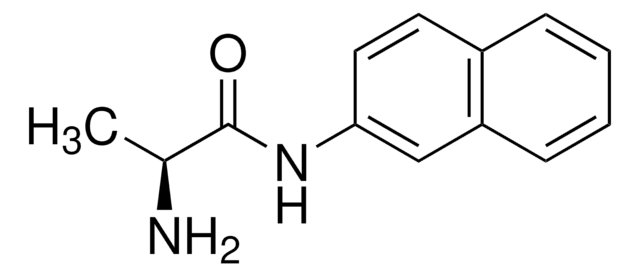M2392
Meprobamate
analytical standard
Synonym(s):
2-Methyl-2-propylpropane-1,3-diol dicarbamate, MPB
About This Item
Recommended Products
grade
analytical standard
Quality Level
drug control
USDEA Schedule IV; Home Office Schedule 3; psychotrope (France); kontrollierte Droge in Deutschland; regulated under CDSA - not available from Sigma-Aldrich Canada; psicótropo (Spain); Decreto Lei 15/93: Tabela IV (Portugal)
technique(s)
HPLC: suitable
gas chromatography (GC): suitable
application(s)
cleaning products
cosmetics
food and beverages
forensics and toxicology
personal care
pharmaceutical (small molecule)
veterinary
format
neat
SMILES string
CCCC(C)(COC(N)=O)COC(N)=O
InChI
1S/C9H18N2O4/c1-3-4-9(2,5-14-7(10)12)6-15-8(11)13/h3-6H2,1-2H3,(H2,10,12)(H2,11,13)
InChI key
NPPQSCRMBWNHMW-UHFFFAOYSA-N
Gene Information
human ... GABRA1(2554) , GABRA2(2555) , GABRA3(2556) , GABRA4(2557) , GABRA5(2558) , GABRA6(2559) , GABRB1(2560) , GABRB2(2561) , GABRB3(2562) , GABRD(2563) , GABRE(2564) , GABRG1(2565) , GABRG2(2566) , GABRG3(2567) , GABRP(2568) , GABRQ(55879)
Looking for similar products? Visit Product Comparison Guide
Application
Biochem/physiol Actions
Recommended products
Signal Word
Warning
Hazard Statements
Hazard Classifications
Acute Tox. 4 Oral
Storage Class Code
11 - Combustible Solids
WGK
WGK 3
Flash Point(F)
Not applicable
Flash Point(C)
Not applicable
Personal Protective Equipment
Choose from one of the most recent versions:
Certificates of Analysis (COA)
Sorry, we don't have COAs for this product available online at this time.
If you need assistance, please contact Customer Support.
Already Own This Product?
Find documentation for the products that you have recently purchased in the Document Library.
Our team of scientists has experience in all areas of research including Life Science, Material Science, Chemical Synthesis, Chromatography, Analytical and many others.
Contact Technical Service









